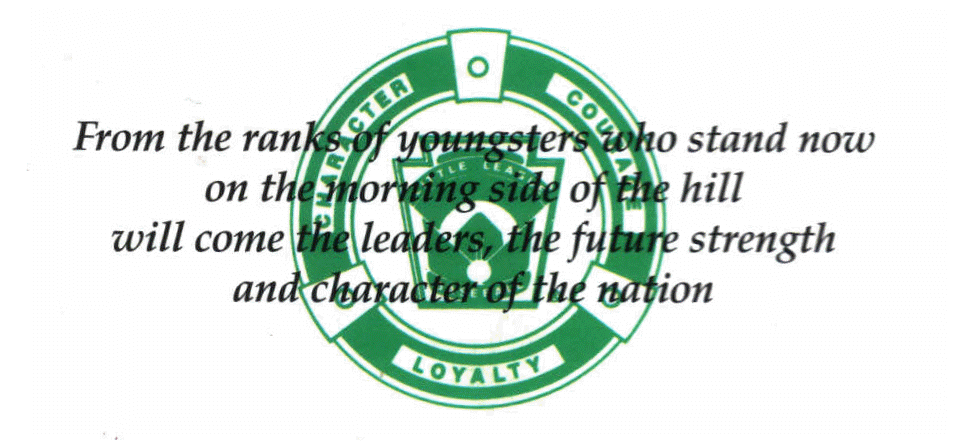![]()
![]()

Parent's Hardest Job
|
Over the past year, I have had the opportunity to conduct eleven parent-training workshops, working with parents who have a strong desire to "do the right thing" when it comes to guiding their children through the world of sports. As I have interacted with these parents, the thing that has really struck me are the tremendous feelings of frustration and helplessness that most of them seem to be experiencing. Perhaps you experience these feelings, too, as you watch your child encounter the challenges, disappointments, and physical and psychological 'hurts' that come with playing baseball or any other sport. The natural inclination of any parent is to protect their child. Thus, when you see an official making a bad call, or a coach cutting down on your child's playing time, or an opposing player physically or verbally attacking your child, you instinctively want to step in and 'handle it'. But what happens if you do? You are labeled a "bad sports parent." With all the media attention directed at sports parents these days, the last thing any parent wants to do is end up on the five o'clock news! But sitting back and doing nothing doesn't feel good, either. So what's a parent to do? The first thing is to understand that the feeling of wanting to run on to the field and push the kid who just pushed your kid is a perfectly normal feeling. Having that feeling doesn't make you a bad person. It makes you a normal parent. In fact, I'd be more worried about you if you didn't have that feeling. The second thing to understand is that how you feel and how you choose to behave about something are two different things. Feelings are neither good nor bad; they just are. Behavior, on the other hand, can be bad. So what you want to do is acknowledge your feelings and then choose to act in a way that will have a positive effect on your child. And the thing that will have the greatest positive effect is to let your child handle it. This is a parent's hardest job: to step back and let their children make mistakes, experience frustration, and even get hurt (within reason). But if you don't let your children work out that problem of reduced playing time with their coach, what are they going to do when they're 27 and their boss passes them over for a promotion? If your children know that every time they face a challenge or setback, Mom or Dad is going to step in, what message does that send to them about their own competence? One of the greatest things about sports is that it is a laboratory for learning the kinds of things we need to know in order to be successful in life. Your job as a parent isn't to conduct the experiment; you're there to make sure no one blows up the lab. It's not easy. No one ever said it would be. But the end result will be worth it. George A. Selleck, Ph.D. is a sports psychologist with degrees from Stanford, USC and Princeton. He has played, coached and consulted for both amateur and professional athletes . Dr. Selleck is author of "From the Bleachers with Love - Advice to Parents with Kids in Sports," and "Beyond the Bleachers - the Art of Parenting Today's Athletes."
These titles are available from Amazon.com
|
Click the button above to go back to the web page or
web site you were at before coming to this page
This
site is awarded the

In
recognition of creativity, integrity and excellence on the Web.
 The
term "Little League" and the Little League logo are
trademarks of Little League Baseball, Inc., Williamsport, Pa.,
extended only to local chartered leagues for purposes of
identification and publicity
The
term "Little League" and the Little League logo are
trademarks of Little League Baseball, Inc., Williamsport, Pa.,
extended only to local chartered leagues for purposes of
identification and publicity
Copyright © 2000 Brookside Little League, Inc. All rights reserved
Brookside Little League, Inc.

Thank you , for visiting Brookside's Little League Web Site
![]()
by
Jon Anderson
jontanderson@juno.com